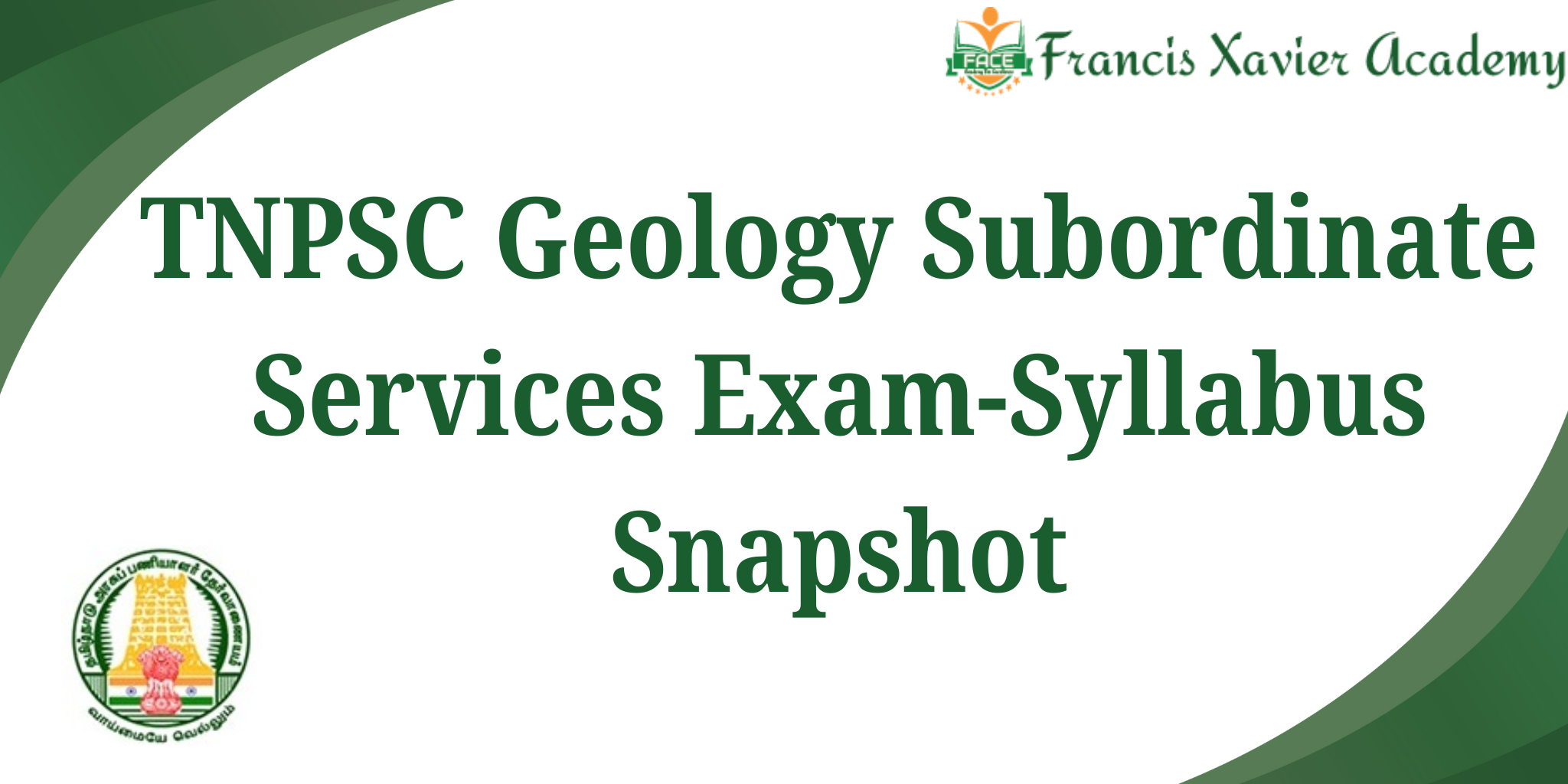
If you’re aiming to build a career in the field of Geology through the Tamil Nadu Public Service Commission (TNPSC), understanding the syllabus for the Combined Geology Subordinate Services Examination is essential. This blog provides a detailed overview of the TNPSC geology exam syllabus, helping you plan your preparation effectively. Here’s a concise breakdown of what you need to study, point by point:
General Geology & Geomorphology
- Origin and structure of the Earth
- Rock cycle and plate tectonics
- Earthquakes and volcanoes
- Geomorphic processes and landforms
- Ocean floor features
- Indian geomorphology
Stratigraphy
- Principles and correlation of stratigraphy
- Indian cratons and mobile belts
- Major sedimentary basins
- Geological boundaries (e.g., Precambrian-Cambrian, K-Pg)
Paleontology
- Fossil preservation and geological time scale
- Major fossil groups (e.g., Trilobites, Corals)
- Gondwana flora and vertebrate evolution
- Paleontological applications in stratigraphy and climate studies
Structural Geology
- Folding and faulting mechanics
- Types of joints and cleavage
- Unconformities and their identification
- Stereographic projections
- Petrofabric analysis
Mineralogy & Crystallography
- Mineral classification and properties
- Crystal systems and symmetry
- X-ray crystallography and diffraction
- Mineral identification techniques
Igneous & Metamorphic Petrology
- Classification and textures of igneous rocks
- Genesis of rocks like granites and basalts
- Metamorphic processes and facies
- Special processes: granitisation, charnockitisation
Sedimentology
- Sedimentary environments and facies models
- Rock types (e.g., sandstone, limestone)
- Sediment transport and deposition
- Structures and textures in sedimentary rocks
Economic Geology
- Mineral deposit formation processes
- Indian distribution of key minerals
- Mineral policies and conservation
- Economic uses of minerals, coal, and petroleum
Hydrogeology
- Groundwater occurrence and aquifers
- Well construction and recharge methods
- Exploration techniques and aquifer properties
Applied Geology
- Geophysical and geochemical methods
- Geological investigation for infrastructure
- Mining methods and ore estimation
- Natural hazard mitigation
- Applications of GIS, GPS, and Remote Sensing
Conclusion
The syllabus is vast but manageable with a strategic study plan. Stay consistent, revise regularly, and align your preparation with these units. You can confidently approach the TNPSC geology exam syllabus. Best of luck with your TNPSC geology journey!
General studies syllabus for Combined Geology Subordinate Services Examination
 Now
Now